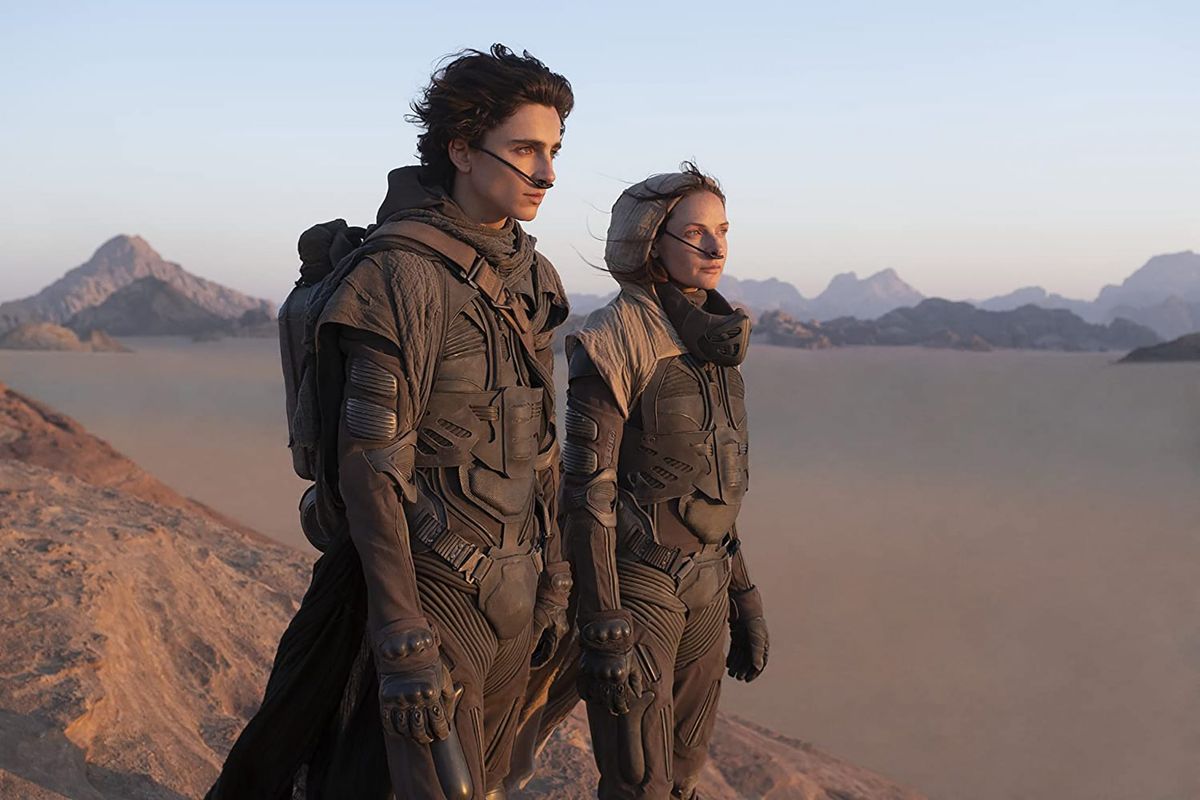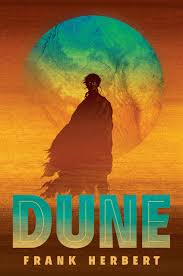Voices: What’s the fuss about “Dune?” A guide to the inspiration for “Star Wars”

A few minutes every morning is all you need.
Stay up to date on the world's Headlines and Human Stories. It's fun, it's factual, it's fluff-free.
For as long as I can remember, “Dune” has consistently ranked as the No. 1 fiction bestseller at Powell’s City of Books. The bold vertical title standing amid sunset-colored sand dunes caught my eye, even as a kid when I had to crane my neck to see the top shelf of bestsellers. Little did I know that the author happened to live and work in my hometown of Portland, Oregon, while he researched and created his galactic saga.
Many of you are probably wondering like I was, what’s the fuss about “Dune?” Come to think of it, what is “Dune?” Read on for answers to your questions and a brief guide to writer Frank Herbert’s sci-fi world.
If you’ve heard whispers of the density of “Dune,” both in terms of plot and length, rest assured the initial slog rewards you. And after all, many cultural classics ripped off Herbert’s epic tale, including “Star Wars.” Yes, “Dune” preceded your precious galaxy far, far away… Though I wouldn’t classify myself as a die-hard “Dune” fan, I can appreciate it for its cultural impact and its masterful writing. Here’s why you should read the first of Herbert’s six “Dune” books.
The premise of “Dune”

Herbert’s “Dune” takes place thousands of years from now in a feudal interstellar society. At this point, humans have colonized space and eradicated artificial intelligence. In the series, a collective of royal houses referred to as the Imperium answer to the galactic Padishah Empire.
The majority of the first book unfolds on the desert planet known as Arrakis, which alone produces the galaxy’s most precious natural resource, spice. When consumed in massive amounts, its hallucinogenic properties allow individuals to make inhuman calculations necessary for space travel. Without it, the galactic economy would collapse.
“Dune” begins amid a transition of power initiated by the Emperor. The greedy and ruthless House Harkonnen has governed Arrakis for 80 years, all while exploiting the rich spice reserves and the Indigenous peoples known as the Fremen. Now House Atreides has accepted stewardship of Arrakis at the Emperor’s invitation.
With any transition of power comes turmoil and violence, especially when it involves the control of the sole source of a coveted resource. Though the Harkonnens have retreated as commanded under imperial order, they plan to retake Arrakis. The twist? The Emperor will secretly provide soldiers to the Harkonnen cause. He fears the power of the Atreides and thus uses the transition of power as a guise to send them to their demise.
Enter the protagonist of “Dune,” 15-year-old Paul, the heir to House Atreides. His uncanny prescience and his heritage mark him as a potential candidate for a long-awaited savior figure. Upon his arrival, the Fremen refer to him in messianic terms, calling him “Mahdi” and “Lisan al Gaib,” words derived from Arabic. After the fall of House Atreides, the Fremen accept Paul as one of their own and prepare for a jihad (another Arabic term that translates to crusade), one Paul has dreaded in his visions.
Some argue “Dune’s” categorization as science fiction distills the complexity of its political and religious commentary. For that reason, before embarking on your journey into the “Dune” universe, you’ll need a basic understanding of the world’s social, economic and environmental issues around 1965, when “Dune” was published.
Political background in our world

Let’s keep this brief. Does Arrakis sound similar to the name of another country, perhaps one in the Middle East? Yes, Iraq. And while spice enables the galactic economy, oil enables our global economy.
In terms of a timeline, “Dune” came out on the market just three years after the Algerian War, and Herbert’s research and writing took six years. Algerians had endured colonial cruelty at the hands of the French for a century before the Algerian War. Herbert even said he wrote Paul as a critique of T.E. Lawrence and other figures like him. Many academics accept “Dune” as an allegory for the collapse of the Ottoman Empire and Western imperialism.
Do I need to read the book to understand the movie?
The easy answer is no; however, the movie abandons much of Herbert’s original vision, especially when it comes to the Fremen. To fully appreciate “Dune” and how it has influenced science fiction as a genre and shaped popular media, you need to read the book.
Wouldn’t you like to know how this series shaped the world’s most famous space opera franchise? The parallels might stun you to the point of accusing George Lucas of plagiarism (think Tatooine as Arrakis and Anakin and Padme as Paul and Chani).
Villeneuve’s 2021 adaptation boasts striking (though appropriative) music, in addition to stellar acting and beautiful cinematography. It’s worth a watch if only to be able to engage in conversations about its faults. However, if you can’t fathom reading 800 pages just to watch a movie, don’t worry! The movie only covers the first half of the book. But the book demands to be consumed, while the movie is only fleetingly relevant in comparison.
Have a story to share? Get in touch at contributors@themilsource.com




Comments ()